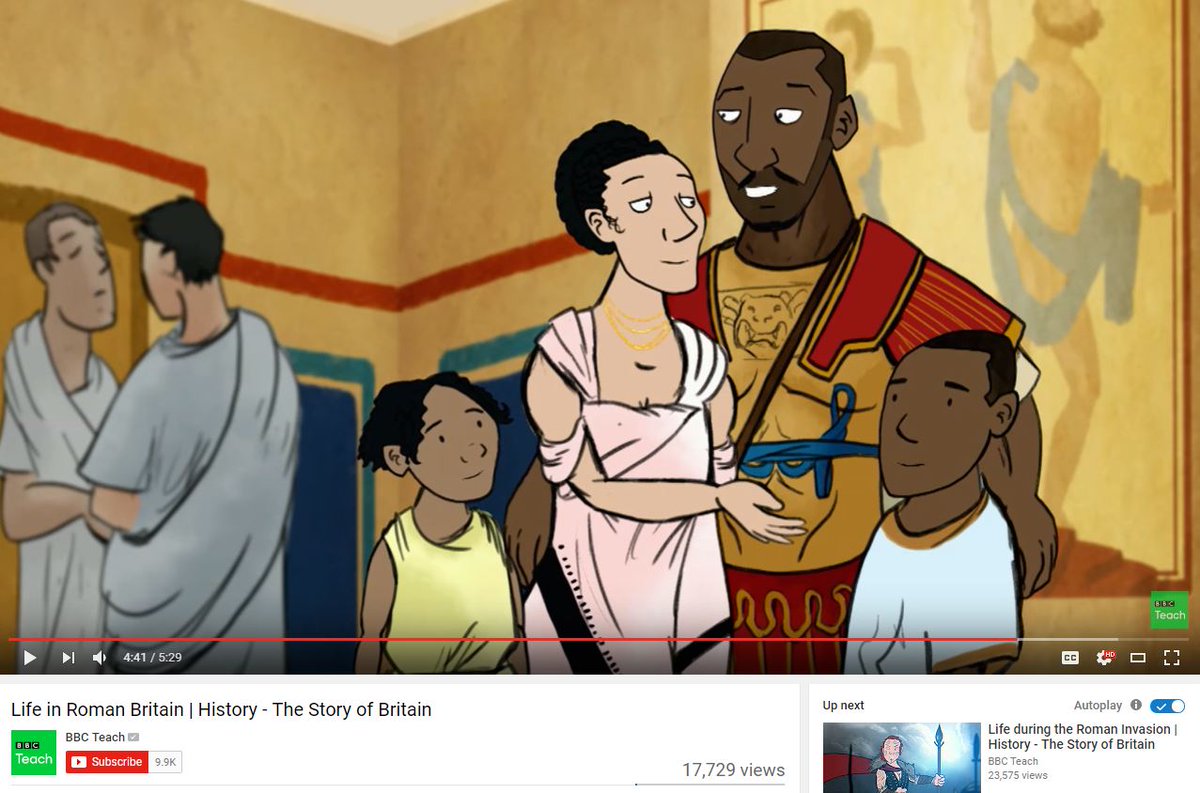27 Sept 2023
Blackwashing: False stories about black prominence
There is a good summary of past blackwashing episodes below:
https://pcwatch.blogspot.com/2023/02/blackwashing-just-side-issue-to.html
If you listen to some historians there have been blacks in Britain since prehistoric times. How you tell skin colour from a skeleton is unclear. But a new example of blackwashing has emerged in the form of a book called "Brilliant Black British History". It says; "the very first Britons were black” -- with not a shred of good evidence for most of the claims. Even Stonehenge was built by blacks, allegedly.The one bit of real evidence offered is that the Roman historian Tacitus reported that the Silures people in Wales were “dark-skinned and curly-haired”. In Tacitus’ full account, he theorised that they may have been from Spain.
The account by Tacitus is confirmed by Jordanes in his "Origins and Deeds of the Goths , where he says, “The Silures have swarthy features and are usually born with curly black hair ... They are like the Gauls or the Spaniards.” So both ancient authors saw the Silures as having a Mediterranean appearance, not an African appearance.
A fuller critique of the book below:
Such appropriations have been rather common from American black authors -- again as mere evidence free assertions. Blacks built the pyramids, of course. I have written on that before. See:
http://jonjayray.com/short/gyppos.html
One instance of blackwashing stands out, however: A BBC program in 2017 that describes black and mixed-race families in Britain during the Roman era. It has the distinction that a couple of British historians have defended it. A graphic from the BBC program.
I have commented on the claims of British hisorian Mary Beard elsewhere so will not repeat that. Link below:
https://pcwatch.blogspot.com/2017/08/lying-old-leftist-broad-as-professional.html
A much more sustained defence of Africans in Roman Britain comes from Mike Stuchbery so I partly reproduce it below. Stuchbery's argument is mainly in a long series of tweets, which would be rather tedious to reproduce but the opening of the article concerned is as follows:Alt-right commentator gets 'schooled' by historian over diversity in Roman Britain
An alt-right commentator who complained about the BBC portraying Roman Britain as ethnically diverse has sparked a row with a historian on Twitter.
Paul Joseph Watson (PJW), editor of alt-right website InfoWars, shared a screengrab of a BBC educational video on life in Britain, suggesting it was inaccurate. “Thank God the BBC is portraying Roman Britain as ethnically diverse,” he tweeted. “I mean, who cares about historical accuracy, right?”
Step forward writer and historian Mike Stuchbery, who gave PJW a quick history lesson on ethnic diversity in Roman Britain.
“Roman Britain was ethnically diverse, almost by design. To begin, occupying legions were drawn from other parts of the Empire,” Stuchbery responded.
“Every year we dig up new remains that suggest that Roman Britain, anywhere larger than a military outpost, was an ethnically diverse place.”
https://www.telegraph.co.uk/news/2017/07/27/alt-right-commentator-gets-schooled-historian-diversity-roman/
All the examples he gives of Africans in Britain are of Mediterranean people, not sub-Saharan Africans. North Africans were and are white, of course. To this day, telling a Berber he is black will get you a dusty response. He will think you are blind or mad.

Berber woman in ethnic dress. It seems likely that the Berbers are in part descendants of the ancient Carthaginians. They are at any event the native people of most of North Africa -- JR
********************************************
This note originated as a blog post. For more blog postings from me, see
DISSECTING LEFTISM,
TONGUE-TIED,
EDUCATION WATCH INTERNATIONAL,
GREENIE WATCH,
POLITICAL CORRECTNESS WATCH,
AUSTRALIAN POLITICS and
IMMIGRATION WATCH.
I update those frequently.
Much less often, I update Paralipomena , A Coral reef compendium and an IQ compendium. I also put up occasional updates on my Personal blog and most days I gather together my most substantial current writings on THE PSYCHOLOGIST.
Email me here (Hotmail address). My Home Pages are here (Academic) or here (Personal). My annual picture page is here; Home page supplement; Menu of my longer writings; Menu of my short notes